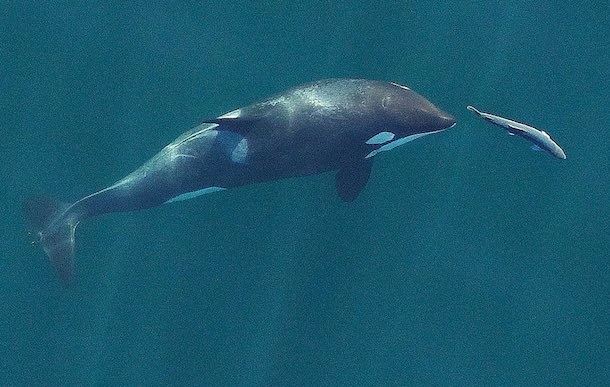forum
library
tutorial
contact

We Need to Put Science
In its Proper Place
by Gary AndrewsThe Olympian, January 22, 2021
|
the film forum library tutorial contact |

|
We Need to Put Science
by Gary Andrews |
 Science is defined as "the intellectual and practical activity encompassing the systematic study of the structure and behavior of the physical and natural world through observation and experiment." The Scientific Method attempts to prove or disprove a hypothesis through systematic observation, measurement and experiment.
In other words, science follows activity, it doesn't lead.
Philip Morris International recently took out a two-page ad in the Wall Street Journal entitled "In Support of the Primacy of Science." The ad claimed that 77% of people are "hopeful" that advances in science can deliver solutions to society's biggest problems. Their "takeaway" from that simple, nonscientific poll?
"Most people have high expectations of science. They ‘believe' in science, just as most people in previous eras believed in higher powers. There is a widespread expectation that science will find a way."
Science is defined as "the intellectual and practical activity encompassing the systematic study of the structure and behavior of the physical and natural world through observation and experiment." The Scientific Method attempts to prove or disprove a hypothesis through systematic observation, measurement and experiment.
In other words, science follows activity, it doesn't lead.
Philip Morris International recently took out a two-page ad in the Wall Street Journal entitled "In Support of the Primacy of Science." The ad claimed that 77% of people are "hopeful" that advances in science can deliver solutions to society's biggest problems. Their "takeaway" from that simple, nonscientific poll?
"Most people have high expectations of science. They ‘believe' in science, just as most people in previous eras believed in higher powers. There is a widespread expectation that science will find a way."
Wow! Philip Morris, a company that is among the biggest killers in world corporate history, a company that scientifically addicted hundreds of millions of people to cigarettes, killing tens of millions of them, wants you to believe in their science the way you believe in your God.
At one time, it was settled science that the world was flat. At one time, it was settled science that the earth was the center of the universe
In 1949, Portuguese neurologist Antonio Egas Moniz won the Nobel Prize for Medicine for developing the lobotomy.
Science is consistently wrong. Best science sets out to disprove a thesis, not to prove a thesis that promotes a particular interest or narrative. Scientists can be hampered by biases, insufficient tools for measuring, limited observation and information, and flawed experiments.
Science can also be wrong when it is extended beyond the limits of the scientific method. Extrapolations of short-term observations for long-term predictions, especially by non-scientists using incomplete scientific data, can lead to egregious miscalculations and conclusions.
Science is not publishing a review of selected scientific studies. Science is not using limited observations, measurements and experiments and then using simple math to predict results far into the future. Our physical and natural world is too complex and ever-changing for any accuracy. Finally, science is not the use of carefully selected studies to advocate for a particular narrative. As the signs in our neighborhoods read, "Science is Real." But let us understand where science stands in our society. First, we use science to try to understand our extraordinary physical and natural world. We can use this understanding to inform us as we make decisions in our lives and in our society. We must understand the limitations of science. Different areas of science may provide information that leads to conclusions that collide with each other. Currently, there is a significant issue between various interests regarding the removal of the four dams on the Washington part of the Snake River. These dams provide sufficient, inexpensive and, arguably, carbon neutral electricity to power a large city. They also provide a significant economic and recreational benefit for farmers, boaters and others. Unfortunately, they also significantly impact the life cycles of salmon and steelhead. To replace this power would require a huge investment in wind, solar or other alternative energy infrastructure. It would also eliminate the use of barges that carry thousands of tons of wheat, corn and other farm products, and they would be replaced by thousands more semi-trucks on the highways from Eastern Washington to West Coast ports, according to the Pacific Northwest Waterways Association.
It is apparent that much more than "science" goes into the decision-making. There are cultural issues on both sides of this issue, as well as employment, tax, and infrastructure issues. None of these issues can be "decided" by science.
When someone says they are just "following the science," we need to ask what that means. For some politicians, it is used as a shield to protect them from challenges to their decisions. Advocates use carefully selected "science" to avoid discussing alternatives to their preferred narrative. Some, when challenged, resort to labeling or name calling: "flat earther," "anti-vaxxer," "climate denier."
It is not science, but my observation is you can't poke someone in the eye and expect them to see things your way.
Good science is skeptical. Good science is a continuing search. Any conclusions can only survive after robust, long-term and constant observation, measurement and experimentation. Science is important to help inform our decision-making, but it should be used rarely as the preeminent basis for critical decisions.
learn more on topics covered in the film
see the video
read the script
learn the songs
discussion forum
